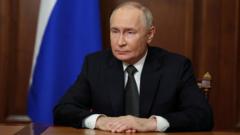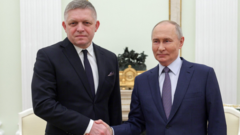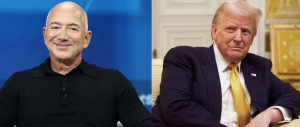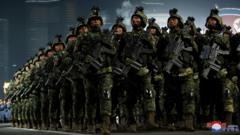The uncertainty surrounding Vladimir Putin's next actions following recent escalations in the war in Ukraine highlights a precarious situation. Notably, the Russian leader has lowered the threshold for nuclear weapon use, provoking concerns over possible further military actions against Ukraine and its Western allies.
The Unpredictable Path Ahead: Assessing Putin's Next Moves

The Unpredictable Path Ahead: Assessing Putin's Next Moves
As tensions escalate, the world's gaze remains fixed on Putin's potential responses to Western military support for Ukraine.
After a week of heightened tensions, the question still looms: "What will Vladimir Putin do next?" This query has garnered significant attention as the Russian president signaled a potential shift in military strategy by lowering the threshold for nuclear arms deployment. Furthermore, the U.S. and U.K. response, permitting Ukraine to utilize Western-supplied long-range missiles against targets within Russian territory, marks another crossing of what the Kremlin regards as a critical boundary. This prompted an assertive response from Putin, who threatened to target military facilities in nations enabling Ukrainian strikes.
This escalation of hostilities raises further questions about the conflict's progression. Observers note that while Putin may accuse the "collective West" of inflaming tensions, his own pattern of escalatory actions includes the full-scale invasion of Ukraine, declaring parts of Ukraine as Russian territory, and launching new weaponry against Ukrainian cities. These actions reveal a tendency for escalation as a tactic to achieve dominance or establish peace on terms favorable to Russia.
The chilling reality is that, irrespective of the rhetoric, little indicates that Moscow will shift towards de-escalation anytime soon. The potential for intensified Russian bombardment looms over Ukraine, with Western leaders remaining vigilant to the threats posed by Putin's recent proclamations. Heightened fears of hybrid warfare tactics further complicate the landscape, as Russian intelligence operations raise concerns of indefinite conflicts spilling into European territories.
Regarding nuclear weapon use, analysts grapple with whether such weapons might be employed should Western support for Ukraine continue. Though the West has previously downplayed Putin’s nuclear rhetoric, recent developments warrant serious attention. The Russian president’s earlier warnings issued at the war's inception resonate more strongly now as he openly acknowledges the use of long-range missiles for attacks inside Russia in response to Ukrainian assaults.
The dynamics surrounding the U.S. presidential race also add another layer of uncertainty. Biden's potential exit from office in favor of Trump, who has articulated skepticism about prolonged military aid for Ukraine, could influence Putin’s calculations. There’s apprehension that the Kremlin may be prompted to reconsider its immediate strategies, especially if such a shift could lead to negotiations more aligned with Russian interests.
In conclusion, while the question of what Putin’s next steps will be remains unanswered, various factors—including ongoing military contributions from the West, Russia's own strategic sensibilities, and broader geopolitical shifts—will significantly shape the trajectory of the conflict. The world watches closely as these unfolding narratives continue to develop.





















